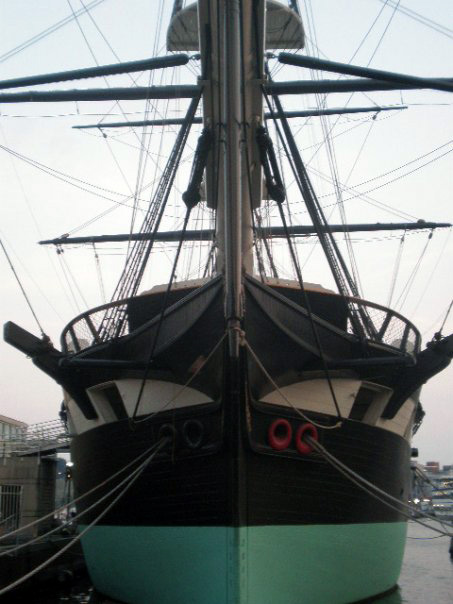The men on board aren't aiming at anything; they're terminally sick, hallucinating and delirious with fever.
You gotta wonder why the captain, or an officer or any other leader, hadn't re-ordered their priorities before the situation became critical.
So what was leadership paying attention to instead?
So what was leadership paying attention to instead?
-- -- --
When it became obvious the ship's crew was no longer effective- or even functioning coherently- why didn't someone step up and take charge?
Even if it meant thinking outside the ship, challenging man-made rituals and routines, and asking "Are we doing anything worthwhile out here, or are we just following ourselves in circles and making each other sick?"
Even if it meant thinking outside the ship, challenging man-made rituals and routines, and asking "Are we doing anything worthwhile out here, or are we just following ourselves in circles and making each other sick?"
-- -- --
The men in Conrad's story, allegedly based on true events, were like zombies ... robot-ing their way through the last days of their lives, adhering to strict traditions like "duty, " "regulation" and "conduct of high standing," even though their "approbation to their county" meant they were sick, dying, and sailing around in circles.
Literally, no one was willing to endanger their position and status by rocking the boat.
-- -- --
At the instant before the last man left on board lit the last fuse, fired the last canon (without a clear target, except perhaps his own helplessness) and collapsed for the last time to die at his station, did he understand what happened and why they had failed?
Could he have explained that blind subordination to man-made regulations, self-serving goals and lofty ambition had trapped them in place, blinded their vision and made their commission inert and ineffective?
Could the last man standing watch at the helm have admitted that stubborn self-absorption ... and not an enemy ... had poisoned their purpose, and left their will vulnerable to defeat?


